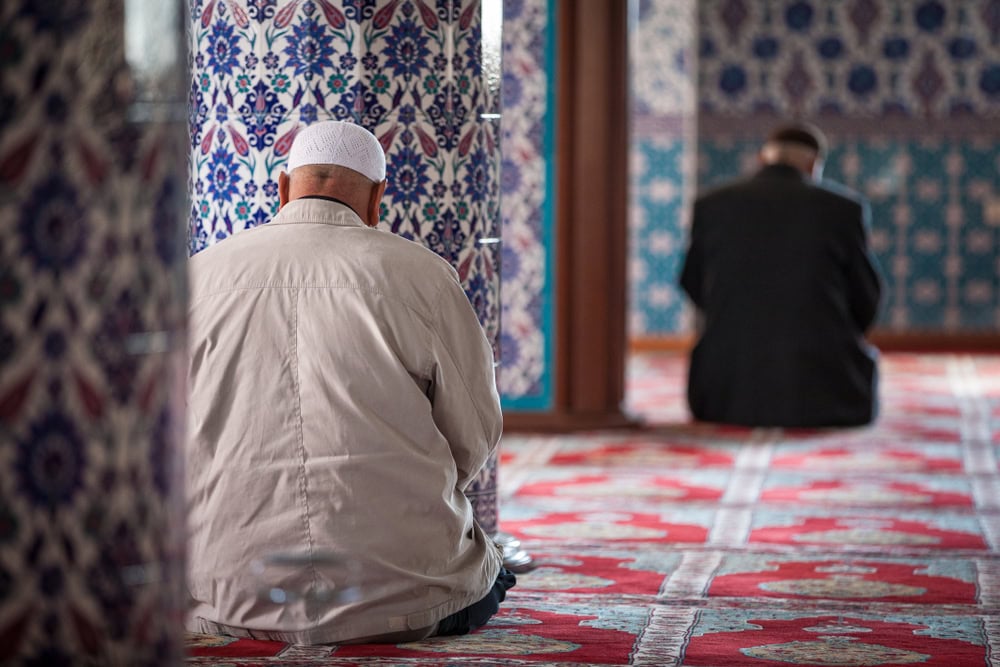What Are the Conditions for the Validity of the Prayer?
Shafi'i Fiqh
Answered By Shaykh Dr. Muhammad Abu Bakr Badhib
Question
What are the conditions for the validity of the prayer?
Answer
In the name of Allah, and all praise is due to Allah, and blessings and peace be upon our master Muhammad, the Messenger of Allah, his family, his companions, and those who follow him.
The jurists (Allah have mercy on them) have made divisions and branches in the books of jurisprudence. They placed these to facilitate students of knowledge and scholars and for the general Muslim populace so they might preserve them and act upon them in their worship. This is because prayer is the greatest pillar of Islam. Hence, great attention was paid to it, and its rulings were emphasized more than others.
The divisions related to prayer include its conditions, which are of two types:
- The first is the conditions of obligation, which are four: Islam, reaching puberty, sanity, and being free from menstruation and post-natal bleeding.
- The second category is the conditions of performance, also referred to as conditions of validity, i.e., the direct validity of performing the prayer. [Bujayrami, Tuhfat al-Habib]
The conditions of validity were enumerated by Shaykh Ba Fadhl in his text “al-Muqaddima al-Hadramiyya,” and he listed fifteen conditions. Shaykh Ba ‘Ishn reviewed them and saw that they could be divided into four categories:
Four Categories
- A category that is a condition for every act of worship; which are: Islam, discernment, knowledge of the obligation, and not believing an obligatory act to be sunna.
- A category that is a condition only for the prayer, which includes purification from minor and major ritual impurities, removal of physical impurities, covering the ‘awra (nakedness), the time of the prayer, and facing the Qibla.
- A category that is a condition for the intention, which includes the last three conditions mentioned.
- A category of prohibitions because the requirement is their abandonment, not their performance, and it is abstaining from speaking, actions, and eating. [Ba ‘Ishn, Bushra al-Karim]
This is a brief and concise explanation, and whoever wants more details should study a jurisprudential text and verify it with a proficient teacher. Seeking knowledge without a teacher can lead to misunderstanding and errors, as it is said:
“He whose teacher is his book, his errors are more than his correct points.”
And Allah knows best.
[Shaykh] Dr. Muhammad Abu Bakr Badhib
Shaykh Dr Muhammad Abu Bakr Badhib is a prominent Islamic scholar from Yemen. He was born in Shibam, Hadhramaut, in 1976. He received his degree in Shari‘a from Al-Ahqaf University, a master’s degree from the Islamic University of Beirut, and a PhD in Usul al-Din from Aligarh Muslim University (AMU).
He studied under great scholars such as Shaykh al-Habib Ahmad Mashhur al-Haddad, Shaykh Fadl Ba‘ fadl, Habib Salim al-Shatiri, Habib Ali Mashhur bin Hafeez, and others. He has served as the Director of Publications at Dar al-Fiqh, the former Deputy Director of Cultural Relations at Al-Ahqaf University, a former Assistant for Employee Affairs at Atiyah Iron Company, a researcher at the Sunna Center affiliated with the Dallah al-Baraka Foundation, and a researcher at Al-Furqan Foundation’s Makka al-Mukarrama and Madina al-Munawwara Encyclopedia branch.
Currently, he is a researcher at Al-Furqan Foundation’s Makka al-Mukarrama and Madina al-Munawwara Encyclopedia branch, teaches traditionally through the Ijaza system at Dar al-Fuqaha in Turkey, supervises the Arabic department at Nur al-Huda International Institute (SeekersGuidance), and is a member of the Board of Trustees of the Manuscript House in Istanbul.
His works include “The Efforts of Hadhramaut Jurists in Serving the Shafi‘i School,” “Contributions of Hadhramaut Scholars in Spreading Islam and its Sciences in India,” and “Hada’iq al-Na‘im in Shafi‘i Fiqh.” He has also verified several books in Fiqh, history, the art of biographies, and Asanid (chains of narration).
